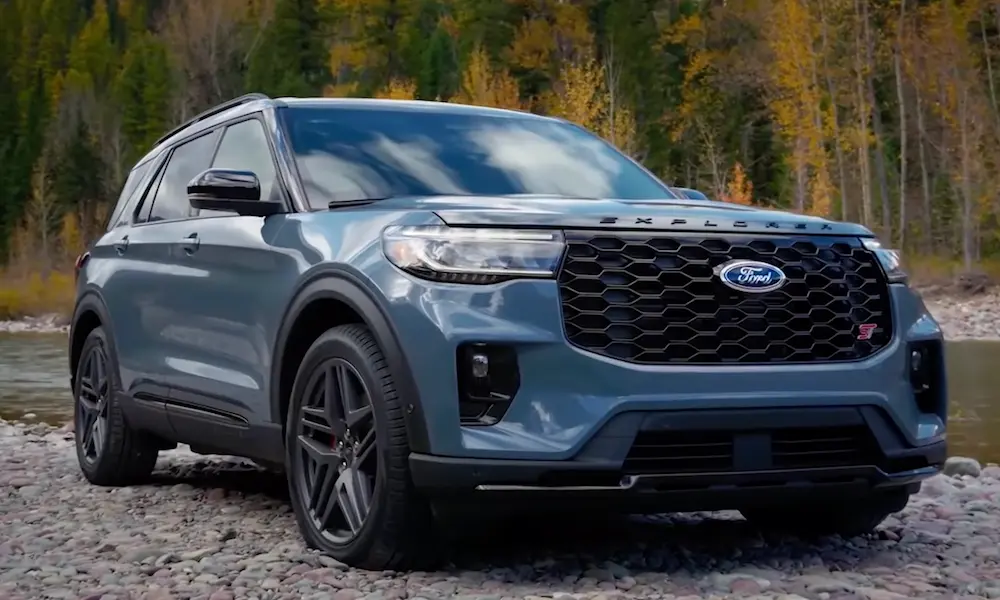Ford Motor Company, an iconic name synonymous with American automotive history, has shaped the landscape of transportation for over a century. While widely recognized for its own Ford-branded vehicles, the question of what other car companies Ford owns is a bit more nuanced than a simple list. The answer isn't as straightforward as it once was, given strategic shifts and business decisions over the years. This article will explore Ford's current holdings, past acquisitions, and the reasons behind its evolving automotive portfolio. We'll also delve into what these changes mean for the future of the company and the automotive industry as a whole.
Understanding Ford's Automotive History: A Foundation for Understanding Ownership
Delving into Ford's Automotive Empire: What Car Companies Does Ford Own?
To truly understand Ford's current ownership structure, it's important to appreciate its historical trajectory. In its early years, Ford focused primarily on its own brand. However, as the company grew, it began acquiring and partnering with other automotive entities, both domestic and international. These acquisitions and partnerships were often driven by a desire to expand into new markets, gain access to new technologies, or diversify its product offerings. Some notable examples include:
- Lincoln: Acquired in 1922, Lincoln remains Ford's luxury division to this day, offering upscale vehicles designed to compete with brands like Cadillac, BMW, and Mercedes-Benz. This acquisition was crucial for Ford to penetrate the high-end market.
- Mercury: Established in 1939, Mercury was positioned as a mid-range brand between Ford and Lincoln. While it ceased production in 2011, Mercury played a significant role in Ford's lineup for several decades, catering to customers who wanted something more than a basic Ford but didn't necessarily want the luxury of a Lincoln.
- Aston Martin: Ford owned Aston Martin from 1994 to 2007. This ownership period saw the revitalization of the Aston Martin brand and the introduction of iconic models.
- Jaguar and Land Rover: Ford acquired Jaguar and Land Rover in 1989 and 2000, respectively. These British brands were eventually sold to Tata Motors in 2008. Ford aimed to strengthen its luxury and SUV offerings through these acquisitions.
- Volvo: Ford owned Volvo from 1999 to 2010. Volvo's reputation for safety and reliability made it an attractive addition to Ford's portfolio.

These past acquisitions highlight Ford's strategic approach to growth and market diversification. However, the global financial crisis of 2008 forced Ford to reassess its strategy and streamline its operations.
Ford's Current Automotive Portfolio: What Brands Does Ford Own Today?
Today, the answer to "What car companies does Ford own?" is significantly simpler than it once was. Ford's current automotive portfolio primarily consists of:
- Ford: The core brand, offering a wide range of vehicles from trucks and SUVs to cars and commercial vehicles. Ford remains the cornerstone of the company's business.
- Lincoln: The luxury division, offering premium vehicles and experiences. Lincoln continues to be a key part of Ford's strategy to compete in the luxury segment.

That's it. Ford no longer owns any other major automotive brands outright. The company has strategically divested itself of other marques to focus on its core strengths and invest in future technologies.
Why Did Ford Sell Off Other Brands? A Shift in Strategy
The decision to sell off brands like Aston Martin, Jaguar, Land Rover, and Volvo was a strategic one driven by several factors:

- Financial Stability: The 2008 financial crisis put immense pressure on Ford. Selling off these brands provided a much-needed influx of capital to help the company weather the storm.
- Focus on Core Competencies: By shedding non-core brands, Ford could focus its resources and expertise on its Ford and Lincoln brands, improving their competitiveness in the market.
- Investment in Future Technologies: The automotive industry is undergoing a massive transformation, with electric vehicles, autonomous driving, and connected car technologies becoming increasingly important. Ford needed to invest heavily in these areas to remain competitive, and selling off other brands freed up resources for this purpose.
This strategic shift reflects a broader trend in the automotive industry, with many manufacturers focusing on fewer brands and prioritizing innovation and technological advancement.
Ford's Strategic Partnerships: A Modern Approach to Collaboration
While Ford may not own as many car companies outright as it once did, it actively engages in strategic partnerships to leverage expertise and share costs. Some notable partnerships include:
- Volkswagen: Ford and Volkswagen have a strategic alliance to collaborate on commercial vehicles, electric vehicles, and autonomous driving technology. This partnership allows both companies to share development costs and accelerate the development of new technologies.
- Rivian: Ford initially invested in Rivian, an electric vehicle startup, but later reduced its stake. This partnership aimed to leverage Rivian's electric vehicle platform and technology.
These partnerships demonstrate Ford's commitment to collaboration and its willingness to work with other companies to achieve its strategic goals.
The Future of Ford: Innovation and Electrification
Looking ahead, Ford's strategy is centered on innovation, electrification, and connected services. The company is investing heavily in electric vehicles, with plans to launch several new EV models in the coming years. Ford is also focused on developing advanced driver-assistance systems (ADAS) and autonomous driving technology. The company's commitment to connectivity is evident in its FordPass app, which allows customers to access a range of services and features, such as remote start, vehicle health monitoring, and mobile payments.
Practical Advice for Understanding Ford's Strategy
- Follow Industry News: Stay informed about Ford's strategic announcements, partnerships, and product launches to gain a deeper understanding of its direction.
- Research Ford's Financial Performance: Analyze Ford's financial reports to understand the impact of its strategic decisions on its bottom line.
- Track Automotive Industry Trends: Keep an eye on the broader trends in the automotive industry, such as electrification, autonomous driving, and connectivity, to understand the context in which Ford is operating.
Potential Challenges and Solutions
- Challenge: Maintaining brand loyalty in a rapidly changing automotive landscape.
- Solution: Focus on building strong relationships with customers, offering innovative products and services, and delivering a seamless customer experience.
- Challenge: Competing with established electric vehicle manufacturers.
- Solution: Invest in battery technology, develop a comprehensive charging infrastructure, and offer compelling electric vehicle models.
Table: Ford's Past and Present Automotive Holdings
| Brand | Status | Period of Ownership | Notes |
|---|---|---|---|
| Ford | Currently Owned | Since 1903 | Core brand of the company. |
| Lincoln | Currently Owned | Since 1922 | Luxury division. |
| Mercury | Discontinued | 1939 - 2011 | Mid-range brand, discontinued in 2011. |
| Aston Martin | Sold | 1994 - 2007 | Revitalized the brand during Ford's ownership. |
| Jaguar | Sold | 1989 - 2008 | Sold to Tata Motors. |
| Land Rover | Sold | 2000 - 2008 | Sold to Tata Motors. |
| Volvo | Sold | 1999 - 2010 | Sold to Geely. |
Frequently Asked Questions (FAQ)
-
Q: Does Ford own Mazda?
- A: No, Ford no longer owns Mazda. Ford held a significant stake in Mazda for many years but gradually reduced its ownership, eventually selling off its remaining shares.
-
Q: Why did Ford sell off its European brands?
- A: The decision to sell off brands like Jaguar, Land Rover, and Volvo was driven by financial pressures, a desire to focus on core competencies, and the need to invest in future technologies.
-
Q: What is Ford's strategy for electric vehicles?
- A: Ford is investing heavily in electric vehicles and plans to launch several new EV models in the coming years. The company is also focused on developing battery technology and a comprehensive charging infrastructure.
-
Q: Is Ford focusing on autonomous driving?
- A: Yes, Ford is actively developing autonomous driving technology and aims to offer autonomous vehicles in the future.
Conclusion: A Focused Future for Ford
While Ford's automotive empire may be smaller than it once was, the company is now more focused and agile. By shedding non-core brands and investing in innovation, electrification, and connected services, Ford is positioning itself for success in the rapidly changing automotive industry. The future of Ford lies not in owning a vast portfolio of brands, but in building strong brands, developing innovative technologies, and delivering exceptional customer experiences. The focus is on quality over quantity, and a clear vision for the future of mobility.
0 comments